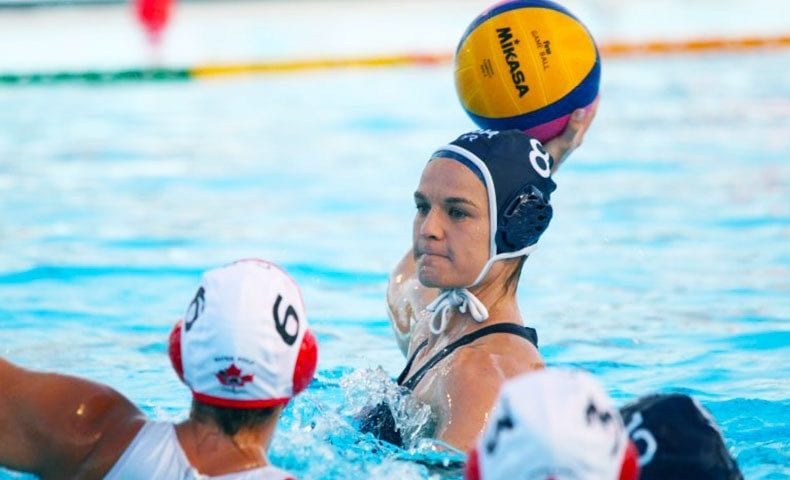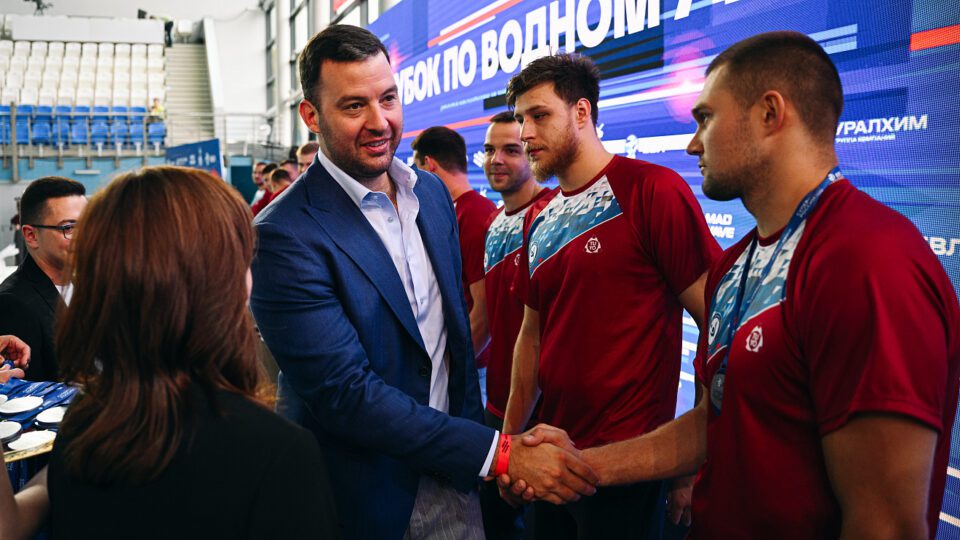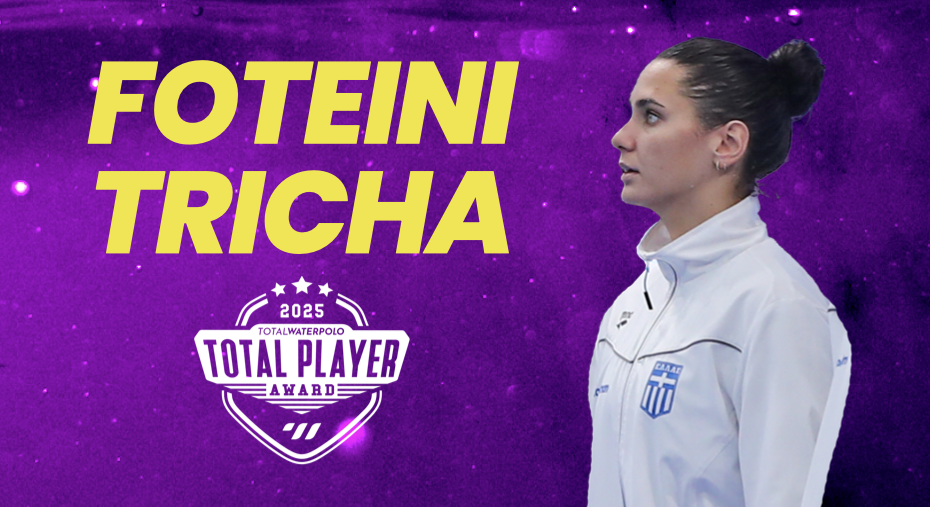Day 6: FINA World League Water Polo Intercontinental Cup in Perth
Perth, Australia, Mar 31— Australia men and United States of America women are the 2019 FINA Water Polo World League Intercontinental Cup champions.
Play concluded at HBF Stadium in Perth today with Australia winning the final 10-8 over Japan and Canada defeated Kazakhstan for bronze 9-4.

United States of America retained its women’s crown with a penalty shootout victory over host Australia.

Final Placings
Men
- Australia
- Japan
- Canada
- Kazakhstan
- Argentina
- China
- New Zealand
- South Africa
Women
- United States of America
- Australia
- China
- Canada
- Japan
- Kazakhstan
- New Zealand
- South Africa
Tournament MVPs
Men: Nicolas Bicari (CAN). Women: Bronwen Knox (AUS).
Tournament Teams
Men: Anthony Hrysanthos (AUS), Nicolas Bicari (CAN), Yusuke Inaba (JPN), Aidan Roach (AUS), Yevgenyi Medvedev (KAZ), Keigo Okawa (JPN), German Yanez (ARG). Coach: Elvia Fatovic (AUS).
Women: Ashleigh Johnson (USA), Bronwen Knox (AUS), Rowie Webster (AUS), Alys Williams (USA), Elyse Lemay-Lavoie (CAN), Kotori Suzuki (JPN), Huan Wang (CHN). Coach: Adam Krikorian (USA).
Highest goal-scorers
Men
21. Yusuke Inaba (JPN)
18. German Yanez (ARG)
18. Nicolas Bicari (CAN)
14. Zhongxian Chen (CHN)
14. Jason Evezard (RSA)
Women
22. Rowie Webster (AUS)
16. Emmerson Houghton (NZL)
15. Yumi Arima (JPN)
14. Huan Wang (CHN)
14. Akari Inaba (JPN)
Match Reports
W21, 09:30, Classification 7-8, New Zealand v South Africa 11:8
In the battle of the southern hemisphere’s Commonwealth countries, New Zealand came home the winner. It was a “big W” said one Kiwi player. They were thrilled to have beaten South Africa in a match that was locked at six by halftime. Only a three-goal breakout in the third period made a major difference to the result. In two minutes the shape of the match had changed through two extra-man-attack goals and one from the penalty line.

Emmerson Houghton, named the
South Africans have been improving and matching fitness with many teams. It led 2-0 but was behind 4-3 at the first break and the comeback from two down to level at 6-6 was another highlight. New Zealand ‘s conversion of the extra-man attack was critical in winning the match.

W22, 10:45, Classification 5-6, Kazakhstan v Japan 7:16
Japan was inspired to beat Kazakhstan after losing to it at last year’s Asian Game in Jakarta by just a single goal. The nine-goal margin is justification for all the hard work in the lead-up to Tokyo 2020. The speed and combinations of the Japanese were hard to stop.

Even in the shorter passes they were snappy and had a deadly effect. Shino Magariyama was named the player of the match and her four goals were the result of that union, finishing off movements started well back down the pool. The fact that the final passes were unselfish was a testament to the team spirit and, more importantly, goals on the board.
Kazakhstan was also inspired in the first half and had the lead at 5-4 after Zamira Myrabekova fired in consecutive goals, one from two meters and the second from six meters. Japan leveled before the long break and kept Kazakhstan scoreless in the third period for 11-5. Kazakhstan broke its 15-minute drought in the fourth when Anna Turova netted her third off a cross pass at center forward. The prowess of Akari Inaba, Magariyama and Yumi Arima made Kazakhstan’s task too tough.

M21, 12:15, Classification 7-8, South Africa v New Zealand 8:10
New Zealand came back from a bad start and converted two down to two up by the final hooter. There was nothing to separate the teams for much of the match and it was only New Zealand’s fitness and finishing in the final two minutes that saw it emulate the women’s team in finishing seventh. Both the Kiwi teams are at the start of their preparations for the FINA World Championships and will return home to compete in their national leagues.

South Africa was 3-1 at the quarter and looked strong, especially Liam Neill at center forward, turning with ease for the second goal. The Kiwis had the match at 4-3, three minutes into the second quarter with three straight, including Sean Newcombe’s “pat shot” off a rebound in front of goal. In the final period, South Africa led 7-6, the Kiwis tied and then went ahead, only for South Africa to level at 8-8 less than five minutes from time.
Then Nicholas Stankovich scored his only two goals of the match for victory and a tournament tally of seven. New Zealand struggled with major fouls, but had no problems with defense, denying South Africa at every one of the 13 chances. South Africa replied by shutting out the Kiwis six times. South Africa had three Kiwis sent from the match while Olver Roarke (RSA) was the only one to sit out the final minutes.

The Kiwis gave up 16 majors, including three penalty goals (all scored by Jason Evezard), and still won the match. It was a clash of even teams with similar styles and they might get to face each other again in Gwangju in July. Anton Sunde finished the highest scored for the Kiwis with 11 goals and South Africa’s best was Evezard with 14.
M22, 13:30, Classification 5-6, Argentina v China 7:5
Argentina is moving a motion on the world stage and upset China to claim the fifth spot in Perth. The lowest-scoring match of the week produced some riveting water polo with the match locked at one, two, three and four by three-quarter time. Argentina then strung together three goals in succession for 7-4 with 2:44 left on the clock.

The match was ostensibly over and China’s consolation came from an extra-man goal to Zhongxian Chen with 47 seconds remaining. It was Chen’s second goal of the match and his 14th for the tournament to finish best of his team. Carlos Camnasio was the difference between the teams with his vibrant all-around play and finishing, claiming four goals, two on action and two on extra-man attack. His last two were in the final-quarter tidal wave.
He lifted his tournament tally to nine while German Yanez’s one penalty strike boosted him to 18, Argentina’s best. If he had not moved forward on his first penalty attempt he could have equaled Japan’s Yusuke Inaba on the top of the list before the latter had played the final.

M23, 14:45, Classification 3-4, Kazakhstan v Canada 4:9
Canada took the match by the scruff of the neck and made sure that Kazakhstan would not be standing on the dais. By collecting bronze, and having the tournament’s best player in Nicholas Bicari (above, scoring a penalty goal), Canada looked odds on to win the bronze. It was a medal that was presented quickly after the match so that the team could get to the airport for the long flight home.

Canada also had the player of the match Dusan Aleksic guarding the goalmouth, something he did brilliantly in this match and most of the tournament. Canada played probably its best match of the week, keeping control throughout, something it has lacked in previous encounters.
At 3-1 by the quarter, Canada was looking sharp and the 5-1 halftime margin had Kazakhstan rocking. The margin was trimmed to 7-4 at the final break, but goals dried up for the Asian team. Bicari was brilliant, no doubt. He shot identical goals in the opening quarter from the top, an unaccustomed position for him as he normally rules the roost at two meters. He drilled one from the penalty line in the second quarter and then blasted one from eight metres down the throat in the fourth.
His four goals lifted him to equal-second 18 on the high-scorers’ list. Reuel D’Souza scored twice for 10 goals. For Kazakhstan, it was a learning step for a team littered with youngsters. Yevgeniy Medvedev was restricted to one goal, taking him to fourth equal place on the list with 14 goals.

Both teams head to Belgrade for the Super Finals full of eagerness and expectations.
Match W23, 16:15, Classification 3-4, China v Canada 11:8
China collected bronze in an exciting match where Canada threw everything on the attack, including the goalkeeper in the final minute. A 4-2 second quarter for China was the difference, plus the 5/7 extra-man-attack conversion rate. Canada made just 2/9. There were plenty of chances for Canada, with center forward Krystina Alogbo missing a short shot from center forward with a slow shot and an open goal shot going wide.

Those chances proved critical. Head coach Pavlidis Theocharis was irate with a goal-judge decision in the final quarter about a ball he thought did not cross the line. He pleaded for goal-line technology, which is included in the raft of new rules, but not yet initiated until the technology is finalized. It came at a crucial time, but Canada was well behind. It spurred Canada to come back to 9-7 and 10-8 before Canada stretched it to 11-8 with 23 seconds remaining
China played its best match all week and Canada is still rebuilding. China’s Huan Wang scored three for China totally 14. Elyse Lemay-Lavoie and Hayley McKelvey were Canada’s best shooters in Perth with 11 goals apiece.

W24 19:30, Classification 1-2, Australia v United States Of America 12:14 in a penalty shootout (FT: 9-9)
United States of America squeezed home with the title after a penalty shootout victory over the host nation in front of a 1000-strong crowd. USA was without star Maggie Steffens, the inspirational captain, who suffered a head injury against Canada the night before. However, USA’s defense was strong in the first quarter with the able Ashleigh Johnson in goal. Saying that the Aussie Stingers were stoic on defense as well with Gabriella Palm playing her 50th match and producing another outstanding performance.

This came through in the second half when USA’s 8-4 halftime lead with trimmed and eventually shattered as the Stingers won the third period 2-1 and the last by a magnificent 3-0, gaining the 9-9 equalizer through skipper Rowie Webster at 0:39. It was late coming but the crowd rose as one as the ploy was plotted at a timeout and the ball moved to Webster, who claimed her 22nd goal of the tournament, eight goals higher than second place-getter and team-mate Zoe Arancini.
USA head coach Adam Krikorian was fuming early in the second quarter as the USA player moved forward on the penalty shot and it was disallowed. It would have been USA’s fourth penalty strike. Krikorian was beside himself, yelling at the referee about the decision. However, that was 3-3 and USA raced to 8-4 almost making it a distant memory. Krikorian was still irate after the match as that missed opportunity came back to haunt the team. The shooter must not move forward from the 5m penalty line.

Then came the shootout, with no-one heading to the drinks and food concession. Isobel Bishop had her first shot blocked while three more Aussie Stingers struck. Unfortunately, all five USA shooters nailed their attempts, even with the Aussie goalkeeper being substituted after the second. It was 14-13 and the fifth Aussie shooter was not required. USA had retained the Intercontinental Cup, winning four of the five titles. This goes with the Olympic, World Championship, World Cup, World League, and Pan American crowns. Australia’s extra-man scoring conversion rate was exceptional at 4/7 while giving up four penalties and restricting USA’s extra-man count to 1/6.
M24, 19:00, Classification 1-2, Japan v Australia 8:10
Australia came through with the gold medal after an enthralling match in which either team could have climbed to the top of the dais. In fact, a turnover decision late in the match took away the momentum from Japan and allowed the Aussie Sharks to control the final minutes and close out the match. The speed of reaction shooting of Japan appeals to most spectators and other teams are forced to try the same just to keep up.

Often the ball went coast to coast with players spread over the whole surface of the pool. It was attractive water polo, played at lightning pace with brilliant ball skills making the difference when it came to converting goals. Japan opened the scoring but Australia had the quarter-time lead before a frantic second quarter set the arena alight. Japan equalized twice and went to the lead at 5-4. Australia retook the lead at 6-5 and led 7-6 at halftime. The third period was almost a dried well for Japan, scoring just once as Joe Kayes and the Edwards brothers, Blake and Lachlan, sent the match into the final quarter 10-7 ahead. Lachlan’s backhander from two meters was a dream shot.
Then it was time for Australia to go scoreless as Japan narrowed to 10-8 with seven minutes remaining. The frenetic activity around the final seven minutes was due heavily by the defense and the supreme prowess of Joel Dennerley in goal was vital to Australia’s victory.
To keep up with water polo news from around the globe, follow us on Twitter and Facebook.






